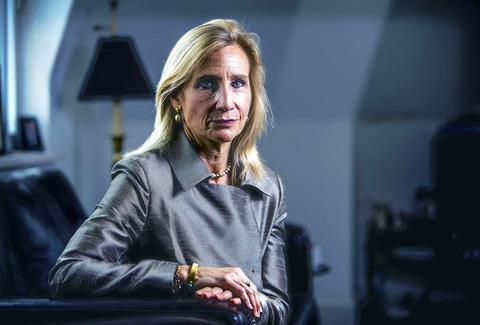Proposed reforms to the 'identification doctrine' in corporate crime could put more companies in the dock for offences committed by executives, legal experts have said. An amendment to the Economic Crime and Corporate Transparency Bill tabled last week will enable senior managers to be treated as the 'directing mind and will' of a large corporation, removing a current barrier to prosecutions.
The Home Office said the measure, which follows a Law Commission recommendation, is the biggest reform in the identification doctine for more than 50 years. Current law requiring a ‘directing mind’ is based on the 1972 ruling in Tesco Supermarkets v Nattrass, in which law lords found that Tesco was not liable for the actions of a store manager who was selling washing powder for one shilling (5p) more than the advertised price.
The economic crime bill, which would also introduce a 'failure to prevent' offence, is currently in report stage in the House of Lords. An amendment moved by Conservative peers Lord Garnier (Edward Garnier KC) and Baroness Morgan of Cotes (Nicky Morgan) would amend the identification doctrine to state: 'A body corporate commits an offence ... where the offence is committed with the consent, or connivance of a senior manager.' A 'senior manager' is defined as an indivIdual who 'plays a significant role' in the making of decisions about how the entity’s relevant activities are to be managed or organised.

Announcing the measure, security minister Tom Tugendhat said: 'Alongside our new failure to prevent fraud offence, these measures demonstrate our commitment to improved transparency. We will ensure that those responsible for economic crime, whether individuals or companies, can be brought to justice.'
The Home Office said that, in practice, a test will be applied to consider the decision-making power of the senior manager who has committed an economic crime, rather than just their job title. 'The corporation may then be liable in its own right. This will reduce the ability for corporations to use complex management structures to conceal who decision makers are and therefore level the playing field for businesses of all sizes.'
Lisa Osofsky, director of the Serious Fraud Office, said the bill's new measures 'would strengthen our ability to hold corporate criminals to account'.
Specialist solicitors said that the proposed change to the identification doctrine would have a big impact. 'If passed into law, this proposed reform would make a very significant difference to the scope of corporate criminal liability and so to how cases of fraud committed by senior managers could be brought,' said Alun Milford, partner at London firm Kingsley Napley. 'Assuming a willingness on the part of the agencies concerned to investigate and prosecute, we can expect to see more corporate defendants and more deferred prosecution agreements.'
Lloyd Firth, counsel in international firm WilmerHale’s UK white collar defence and investigations practice, said: 'Reform of the identification doctrine would be a very big deal. The devil will be in the detail of the proposals but any broadening of the means of attaching corporate criminal liability is potentially of far greater significance for the UK white collar crime landscape than the proposed failure to prevent fraud offence that has garnered so much attention recently.'



























4 Readers' comments